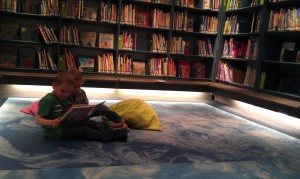Is The Internet Costing Us Our Freedom?
The questions raised in this week’s symposium were centred on the importance of the Internet in our lives, and how we can use/teach it better. As Adrian mentioned in the very first symposium, network literacy, whether we like it or not, is paramount to not only a career in the media, but to life in general.
It’s incredible how much we use the Internet in our every day lives, instant messaging, Facebook, email, research etc. In fact, there is an expectation that you are connected to the World Wide Web in some way or another, making it a difficult choice to disconnect.
I was born in the 80s and grew up in the 90s so I remember very clearly what life was like before the Internet. We had library lessons every week where we leant how to use catalogue systems, people sent letters to each other, my mum had a work pager, and when we had nothing better to do with ourselves we played outside.
My younger sister on the other hand, was born in the year 2000 and has never known a life without the Internet. This makes me feel a little sad for her because in a world where online connection is pretty much unavoidable, my sister will never experience the simplicity of life pre-Internet.
But maybe there is a small glimmer of hope.
Is it possible to quit the internet? Paul Miller did it and has some very interesting lessons to share about his experience, which without the Internet we wouldn’t have the opportunity of knowing. I have embedded the video below, it’s well worth the watch if you have a spare eighteen minutes.
I feel privileged to have known what life was like before the Internet, but I feel that in the media environment of today it is necessary to be connected. However, it doesn’t have to cost us our freedom. As Paul Miller said in his TED Talk, find out what’s important to you and use the Internet to do that thing. We are in control and we can choose to prevent the Internet from ruling us. In this way we can have the freedom of the pre-Internet age and the advantages of an online presence.



